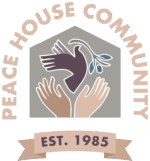Estate Planning and Gifts
Why Bother with Estate Planning
Have you created an estate plan, such as a will, that gives clear instructions about who will benefit from your estate? If not, please consider creating a plan, as it will spare your family and friends from difficult decisions when they are already grieving, and can even be set up as a memorial to those you love. A clear plan avoids arguments, court fees, probate costs, and legal fees. It can also save money in estate and other taxes, ensuring that you make the biggest impact possible with your resources. An estate plan also ensures that you are in control of your resources, and that you decide where your money goes. You can consult a financial advisor, estate planning attorney, or chartered public accountant for information on preparing an estate plan. Free online resources also exist, but consulting an expert guarantees that your plan matches your estate.
Do you think your estate is too small to need a plan? Actually, estate plans are more important for smaller estates than for large ones. The family of a wealthy individual can spend money on lawyers to divide an estate and still have money left over. By the time a small estate pays off lawyers’ fees and court costs, there may be little left over for the people and causes that you care for.
Estate Plan
By creating an estate plan, you ensure that your generosity lives on. Including Peace House Community in your estate plan will benefit the community members who rely on Peace House Community for a place to belong, a place to nourish their souls and bodies. Your gift will ensure that PHC continues to meet the emotional and relational needs of its community members for decades to come.
Creating a written document that clearly states your intentions for how your estate will be divided after your death has many benefits, including:
- Peace of mind
- Avoiding costly taxes, and probate and court fees, that will reduce the amount of your estate that goes to the people and causes you love
- Protecting those close to you from difficult decisions and paperwork while they are grieving
- Ensuring that you control your resources.
While creating an estate plan with a professional advisor may seem time consuming and expensive, in the long run it is quicker and less expensive than not creating an estate plan.
PHC provides the information below to give you an idea of the options you have when considering your estate plan, although a financial professional can offer other alternatives as well. We encourage you to speak with a financial advisor, estate planning attorney, or chartered public accountant to determine what arrangements will achieve your goals for your estate.
Types of Gifts
PHC supporters can leave an estate gift to Peace House community in several ways:
- Bequest – A provision of one’s estate plan (will or living trust) that includes Peace House Community as a beneficiary.
- Planned Gift – a gift that provides the donor and/or others with a life income or other benefits and specifies Peace House Community as the charitable beneficiary.
- Life Insurance – naming Peace House Community as the owner and/or a beneficiary (either in whole or in part) of a life insurance policy
- Qualified Retirement Plan – Naming Peace House Community as the beneficiary of a tax-deferred retirement plan (IRA, 401(k), 403(b), etc.).
Recognition
Peace House Communitywill recognize the estates of donors who leave legacy gifts in year end reports. Donors can contact Peace House Community if they would like additional public recognition.
Uses of the Gifts
Legacy Program members can designate the areas within the organization where their gift will be used. If the member does not designate the gift, a legacy gift will be applied to Peace House Community’s General Operating Budget.
For More Information
Please contact Peace House Community at 612-870-7263 or contact@peacehousecommunity.org if you have specific questions or need more information.
Peace House Community’s Federal Tax ID number: 41-1940764
